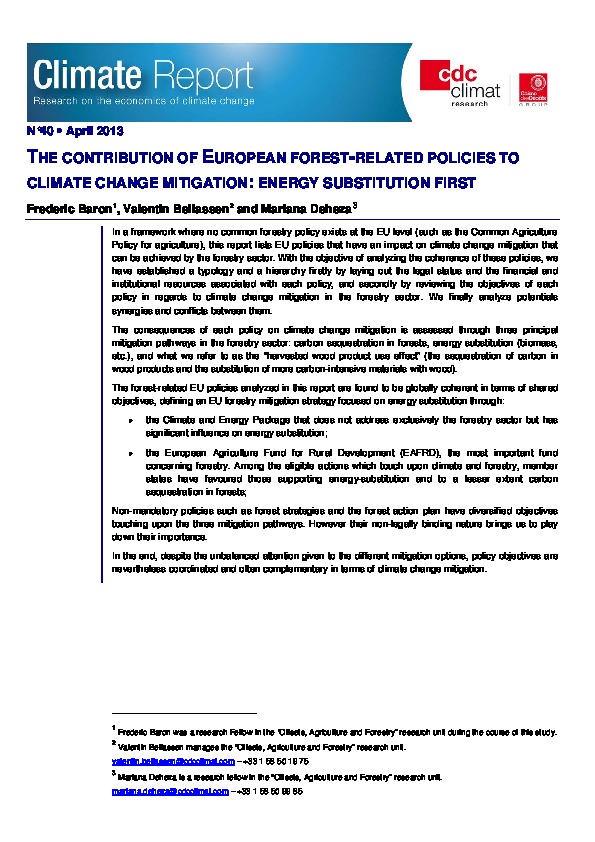The contribution of european forest-related policies to climate change mitigation: energy substitution first
By Frederic Baron, Valentin Bellassen and Mariana Deheza
In a framework where no common forestry policy exists at the EU level (such as the Common Agriculture Policy for agriculture), this report lists EU policies that have an impact on climate change mitigation that can be achieved by the forestry sector. With the objective of analyzing the coherence of these policies, we have established a typology and a hierarchy firstly by laying out the legal status and the financial and institutional resources associated with each policy, and secondly by reviewing the objectives of each policy in regards to climate change mitigation in the forestry sector. We finally analyze potentials synergies and conflicts between them.
